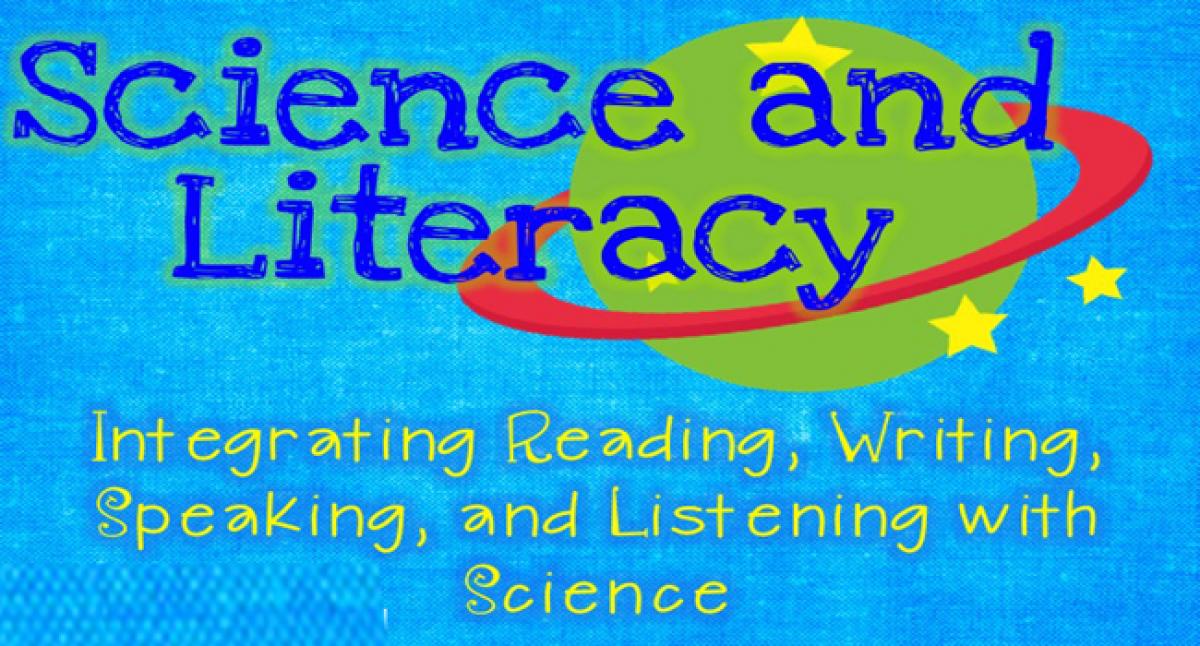Live
- Chanchalguda Jail Officials Say They Haven't Received Bail Papers Yet, Allu Arjun May Stay in Jail Tonight
- BJP leaders present evidence of illegal voters in Delhi, urge EC for swift action
- Exams will not be cancelled: BPSC chairman
- Nagesh Trophy: Karnataka, T.N win in Group A; Bihar, Rajasthan triumph in Group B
- YS Jagan condemns the arrest of Allu Arjun
- Economic and digital corridors to maritime connectivity, India and Italy building vision for future, says Italian Ambassador
- SMAT 2024: Patidar's heroics guide Madhya Pradesh to final after 13 years
- CCPA issues notices to 17 entities for violating direct selling rules
- Mamata expresses satisfaction over speedy conviction in minor girl rape-murder case
- Transparent Survey Process for Indiramma Housing Scheme Directed by District Collector
Just In

Science and literacy learning make a dynamic duo. This is the general perception, all over the world. Before one goes into in detail, there is a compelling need to find if there is any link between science and literacy. The answer is yes because ‘reading is an essential part of science literacy’.
Science and literacy learning make a dynamic duo. This is the general perception, all over the world. Before one goes into in detail, there is a compelling need to find if there is any link between science and literacy. The answer is yes because ‘reading is an essential part of science literacy’.
We want students to become scientifically literate citizens as envisioned in the International Science Education Standards-students, who read science, enjoy reading science, and even experience the passion they feel for the natural world.
Unfortunately, it is clear that our science curriculum, especially the textbook, does not include motivating or accessible reading for students. Pedagogy of learning sciences should be designed to address the aims of learning science to learn the facts and principles of science and its applications, consistent with the stage of cognitive development.
To nurture the natural curiosity, aesthetic sense and creativity in science and technology is integral to this argument. To imbibe the values of honesty, integrity, cooperation, concern for life and preservation of environment and to cultivate 'scientific temper'-objectivity, critical thinking and freedom from fear and prejudice.
(NCF 2005) But conditions in classrooms are varied; teacher and student characteristics too vary widely. Teaching and learning is complex, context-dependent processes and one needs to first describe this complexity in order to understand it, before eventually aiming to control it.
In a classroom, however, experiments are motivated by the teacher or the textbook; the students either watch or follow instructions; they are told which particular observation to focus on, and the inference is also told to them and even science time in schools is often limited.
A good pedagogy must essentially be a judicious mix of approaches, with the inquiry approach being one of them. Science learning needs the effective use of language.
The job of a science teacher is to teach students how to use thematic patterns of science to communicate meanings, “talking science” to solve problems in writing or speaking about issues in which science is relevant.
Scientific writing and talk often project science as a description of the way the world works rather than as a human social activity that tries to make sense of the world. We instead should help our students learn that science is all around us, influenced by human uncertainties, judgments, values, and interests. It’s important that we emphasize the human side of science. Just think how our understanding of the world has changed as a result of the invention of telescopes or microscopes!
Adults in the twenty-first century...will need to be scientifically literate-to possess a set of skills that adopts knowledge of science concepts, facts, and processes with the ability to use language to articulate and communicate about ideas (Thier &Daviss, 2002).
Science and literacy are based on parallel or reciprocal processes. Both scientists and readers, writers, and communicators activate background knowledge, observe, ask questions, search for information, design investigations, note details, compare and contrast, sequence events, distinguish fact from opinion, make inferences and predictions, link cause and effect, and use language to communicate their findings.
Rich, integrated instruction in way guides students toward mastery in both science and literacy, The simplest way a good reader, communicators (writers and speakers), and scientists are skilled in the following steps of the scientific method: asking questions; hypothesis (making predictions ); searching for information; designing the experiment to testing hypothesis; results and conclusion- summarizing and representing findings; giving applications to the society.
The most effective method of teaching literacy skills is through an integrated approach as well. For integrated learning merely assigning reading and writing is not adequate. Students need to be taught, through teacher modelling and instruction, how to do journal writing, state a claim, do think aloud, write reports, ask questions, conduct research, gather relevant information, create graphics, do oral and visual presentations, all of which can be done in the context of science learning.
Individuals will display their scientific literacy in different ways, such as appropriately using technical terms, or applying scientific concepts and processes. And individuals often will have differences in literacy in different domains, such as more understanding of life-science concepts and words, and less understanding of physical-science concepts and words.
In conclusion, promoting reading, writing, and talking while “doing science” plays a vital role in effective teaching and learning of the subject is highlighted. Science educators can make a significant contribution to both understanding science and promoting literacy.
Attitudes and values established toward science in the early years will shape a person's development of scientific literacy as an adult. (The writer has specialised in Botany from Anwar-Ul-Uloom College, Hyderabad).
By Amtul Ghafoor Unnisa

© 2024 Hyderabad Media House Limited/The Hans India. All rights reserved. Powered by hocalwire.com







